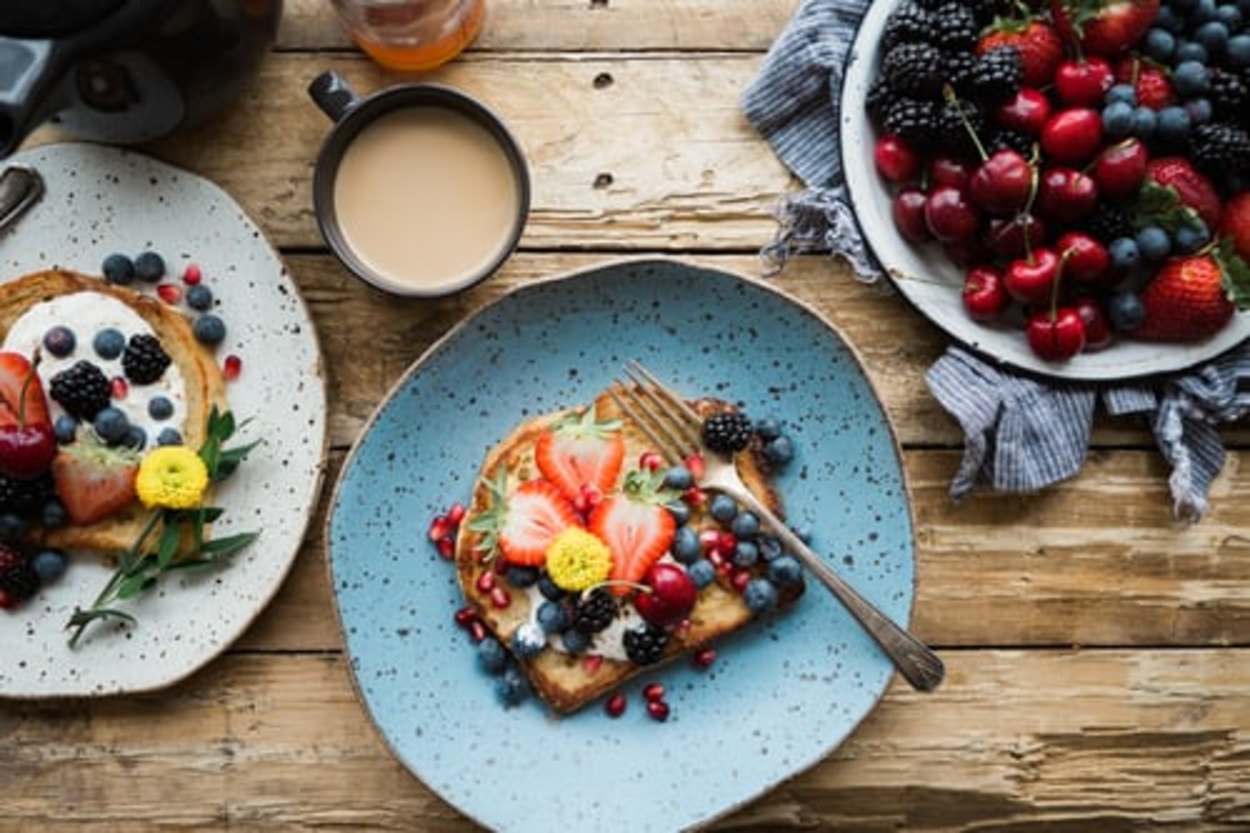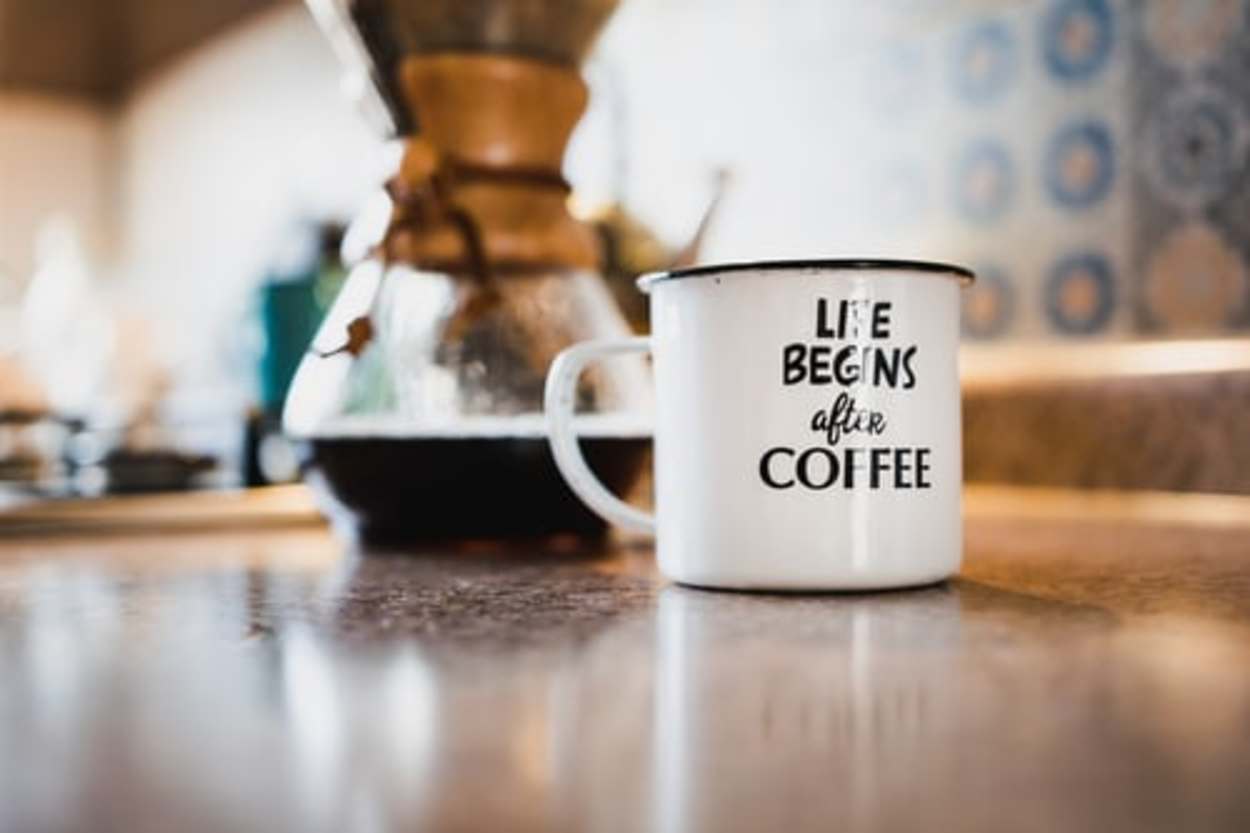The first thing that might help you in gaining an energy boost early in the morning can be your serving of freshly prepared coffee.
Coffee is not just a drink for people. There is a sense of attachment to the beverage that makes people energetic and pleased.
Whether it be your midnight assignment streak or an afternoon work slump, you always opt for the easiest option to uplift your concentration which is a cup of coffee. Right?
Despite having a generous amount of health benefits, you may wonder if coffee is enough to serve you as a functional food in your breakfast.
And the short answer is, nutritionally, coffee is not enough for breakfast.
This article will be reviewing the true answer regarding this concern and provide you with satisfactory explanations for it.
So let’s get started!
Is Coffee a Food?
The U.S. Food and Drug Administration stated that anything we can put into our mouth and swallow is technically food for us.
In that sense, coffee is a food.
It bears almost all the major features of a functional food like providing nutrients, energy, modulating targeted functions, and reducing the risk of diseases.
But does that make the beverage an ideal addition to your daily meal?
The idea of considering something food generally comes from the notion of present nutrients in that particular item. Simply put, food is something that we eat to satisfy our hunger and have better immunity.
Coming from that point of view, coffee can’t be an ideal food for you. The fact that it contains a stimulant called caffeine, makes its consumption limited. Also, all the necessary nutrients are not present in the drink.
Coffee is not consumed as a nutritious source but as a go-to means of relieving physical and mental fatigue.
Read my analysis about this topic here.
Is having just a cup of coffee for breakfast bad?

‘Bad’ is a relative term.
Having just coffee for your breakfast won’t be deadly for your body. But remember, you cannot get the necessary nutrients just from the drink.
If you are in good health and eating lots of other healthy food right after consuming the beverage then you will be completely fine. However, just a cup of coffee for breakfast won’t suffice.
Many people’s digestive system is very sensitive. For them to avoid the rough sensation of gastritis, experts suggest not to drink coffee the first thing in the morning.
As FitDay suggests, though coffee may make you feel recharged in the morning with its effects lasting temporarily.
When the half-life of the caffeine starts to deplete, you will soon feel tired. This is why you need nutrients from healthy food having a combination of low-fat protein and carbohydrates in your breakfast.
If you do not feel like eating after waking up, I suggest eating a proper meal after a few minutes of having your first cup of coffee.
Is it good to drink coffee for breakfast?
It is absolutely safe to drink coffee for breakfast, accompanied by other foods containing protein and a little bit of carbohydrate.
For example, you can have an egg, a sandwich, and some veggies alongside your morning coffee.
Breakfast is the most important meal of the day. The nutrients and energy gained from the meals can help you in performing your metabolic activities smoothly.
You will have a physical and mental breakdown easily if you do not feed your body with the adequate amount of food it needs.
Rather than that, coffee may help you in terms of:
- Enhanced physical performance
- Increased alertness
- Better mood
- Good memory
Long-term consumption of the drink may also protect your body from adverse health conditions like kidney stones, cirrhosis, liver cancer, dementia, Parkinson’s, and Alzheimer’s.
So don’t worry to pair up your breakfast meals with a freshly brewed cup of coffee!
Is coffee a good meal replacement?
Absolutely not!
Reviews from the article by Independent showed, while the beverage can’t be a meal replacement, it can stimulate thermogenesis. As a result, our hunger and thirst are satisfied right after having it.
Remember that, this feeling of reduced appetite is temporary. As soon as the effect of the caffeine content in your body starts to doze off, you will feel fatigued and start looking for more cups.
The extra cups won’t be beneficial if you are not taking a healthy snack with them.
In short, you can drink coffee whenever you need it with your meals but not as your meal.
Is it ‘OK’ to drink coffee first thing in the morning?

First coffee in the morning can manage you to give a quick energy boost. But this first coffee can also create gut health issues in your body.
It also increases cortisol that can negatively affect ovulation and hormonal balance. If you are prone to acid reflux, you need to fill yourself with a proper meal at first before sipping on your cup of joe.
Experts recommend eating a breakfast of calcium-rich foods in the morning. This would help to neutralize both the acidity of the drink and the acids present in your digestive system.
Coffee will actually give you the desired boost without any adverse impacts only if you take it after a standard period of waking up and having breakfast.
Is it bad to drink coffee on empty stomach?
Morning coffee is a sacred part of the routine for many of us but it isn’t necessarily good for your stomach.
When you drink it right after waking up, your stomach is abruptly activated after a night’s sleep and starts to secrete unnecessary acids.
In some people, coffee messes with their circadian rhythm. This is the internal process that regulates your sleep-wake cycle.
I have seen people suffering from the unwanted sensation of gastritis, mostly because they used to skip proper meals for breakfast.
So, my piece of advice would be, to not drink coffee on empty stomach. Grab something light like a protein bar or a poached egg and then gulp your drink.
Benefits of Having Coffee On Your Breakfast Meal
Coffee is a fluid source for your body.
When coffee is added to meals, it can contribute to the physiological functions of the body and provide you with enhanced productivity.
These are the benefits you can gain from drinking coffee:
- It gives you the energy start to the day.
- Coffee keeps you alert.
- It is a good source of antioxidants.
- Coffee increases fluid intake.
- It uplifts your mood.
In addition, the nutrients absorbed from the meals along with coffee will help you in balancing the overall functionality of your system. Still, keep in mind to drink coffee in moderation.
Does drinking coffee in the morning have the same metabolic effects as having breakfast?
Drinking coffee won’t have the same metabolic effects as having a proper breakfast.
A nutrient balanced meal for breakfast helps in:
- Boosting energy levels
- Restoring glycogen level
- Preventing large fluctuations in blood glucose level
When we drink coffee instead of a meal, our blood is impaired. This is because the body comes into contact with the stimulant first after a night of sleep.
Professor James Betts from the Centre of Nutrition, Exercise, and Metabolism at the University of Bath suggests eating first before having coffee.
You may experience heartburn or acid reflux if you only have coffee instead of a full breakfast.
When this happens, the muscle that connects to the stomach and esophagus is relaxed creating an opening for stomach acid that comes up to your esophagus making you restless and uncomfortable.
With that said, be sure to consume coffee alongside a full breakfast meal.
What to eat before having coffee?
Below is a list of nutritious food that you can add to your breakfast meal or consume before having a cup of coffee:
- fruits such as banana, apple, cherry, grapefruit
- raw nuts such as almonds, pecans, walnuts
- porridge
- fresh yogurt
- veggie sticks
- hommus
- wholemeal sandwich
- poached or boiled eggs
Try to balance the nutrient intake by having a combination of calcium, protein, carbohydrate, and minerals.
You can also add smoothies prepared from fresh fruits, milk, and veggies to fill in your fluid intake along with coffee.
How much coffee should you drink in breakfast?
A single cup of coffee is enough for a healthy individual to kick off the day as suggested by health experts.
Wait till you have something in your system and then go for the caffeinated drink.
If a cup is not enough for you, drink another one at noon. Try to avoid any caffeinated drink after the afternoon to avoid disrupting your sleep.
Though the recommended guideline limits you within 400 milligrams of caffeine per day, still you need to watch your consumption as other food that you consume throughout the day may contain caffeine.
Final Thoughts
You can’t get the nutrients that you need from your first meal of the day from coffee alone.
Do not consume coffee to suppress appetite during breakfast.
If you are in a hurry or just not in a mood to eat, grab a protein snack and a smoothie to fill your stomach. You will be needing the nutrients for the better functioning of your organ systems throughout the day.
After the caffeine starts to deplete in your system, your body will urge you to get more of it to sustain the desired effect. This may lead to an unhealthy dependency on the beverage.
Also, your brain will start to crave high fat and sugary foods which may lead you to a high-calorie binge.
Limit your coffee intake and be sure to always keep in mind the level of recommended caffeine consumption per day.
If you are pregnant or on certain medications, consult with your health care provider for a safe quantity to intake.
Lastly, have coffee as a complimentary drink not as a whole meal for breakfast and drink lots of water.
Other Articles
- Check out this post’s visual story!
- Is coffee good for plants?
- Is bulletproof coffee bad for you?
- Coffee VS Decaf
Contents
- 1 Is Coffee a Food?
- 2 Is having just a cup of coffee for breakfast bad?
- 3 Is it good to drink coffee for breakfast?
- 4 Is coffee a good meal replacement?
- 5 Is it ‘OK’ to drink coffee first thing in the morning?
- 6 Is it bad to drink coffee on empty stomach?
- 7 Benefits of Having Coffee On Your Breakfast Meal
- 8 Does drinking coffee in the morning have the same metabolic effects as having breakfast?
- 9 What to eat before having coffee?
- 10 How much coffee should you drink in breakfast?
- 11 Final Thoughts
- 12 Other Articles

